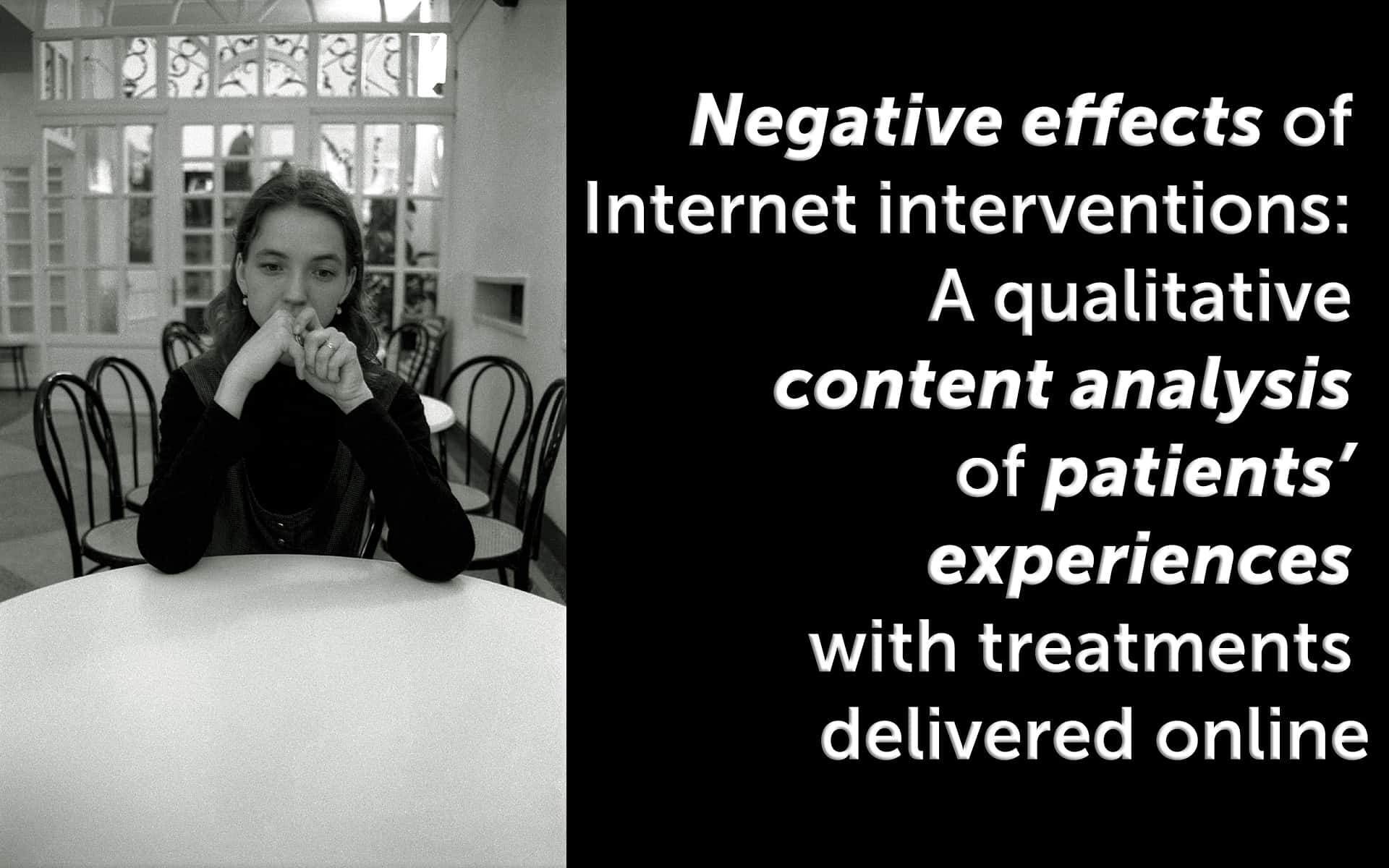Today a paper was accepted for publication about potential negative effects of Internet interventions. Internet interventions are defined as the delivery of health-care-related treatments via an online or a smartphone interface, and have been shown to be a viable alternative to face-to-face treatments. However, not all patients benefit from such treatments, and it is possible that some may experience negative effects. Investigations of face-to-face treatments indicate that deterioration occurs in five to ten percent of all patients. The nature and scope of other negative effects of Internet interventions is, however, largely unknown. Hence, the current study explored patients’ reported negative experiences while undergoing treatments delivered via the Internet. Data from four large clinical trials (total N = 558) revealed that 9.3 percent of patients reported some type of negative effects. Qualitative content analysis was used to explore the patients’ responses to open-ended questions regarding their negative experiences. Results yielded two broad categories and four subcategories of negative effects: patient-related negative effects (insight and symptom), and treatment-related negative effects (implementation and format). Results emphasize the importance of always considering negative effects in Internet-based interventions, and point to several ways of preventing such experiences, including regular assessment of negative events, increasing the flexibility of treatment schedules and therapist contact, as well as prolonging the treatment duration.
Now you can read the full paper via this link:
Rozental, A., Boettcher, J., Andersson, G., Schmidt, B., & Carlbring, P. (2015).Negative effects of Internet interventions: A qualitative content analysis of patients’ experiences with treatments delivered online. Cognitive Behaviour Therapy, 44 223-236. doi: 10.1080/16506073.2015.1008033y.
